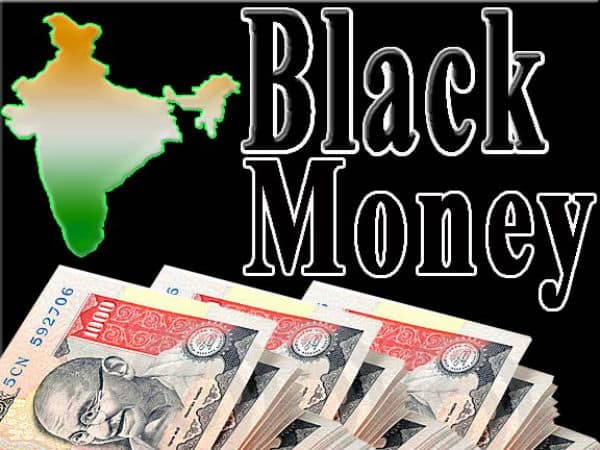Tax Investigation Unveils Alleged Fraudulent Practices in Import Duty Payments
India has issued a staggering $1.4 billion tax evasion notice to Volkswagen’s Indian unit, Skoda Auto Volkswagen India, over allegations of misclassifying imports to evade higher import duties. The notice, dated September 30, 2024, claims that the company imported nearly complete cars in a disassembled form—designated as Completely Knocked Down (CKD) units—while intentionally misdeclaring them as individual parts to pay significantly lower import duties.
The Allegations
Volkswagen’s imports, including those for luxury models such as the Audi A4, Q5, and the VW Tiguan SUV, were allegedly declared as parts, attracting a 5-15% tax, instead of the 30-35% duty applicable to CKD units. Indian investigators claim that the company’s logistical arrangements were specifically designed to circumvent these higher taxes by splitting consignments into multiple smaller shipments that arrived almost simultaneously, masking the full scope of the imports.
According to the 95-page notice from India’s Office of the Commissioner of Customs in Maharashtra, this practice was “willfully done to evade the payment of applicable duties.” Investigators argue that this was not a logistical efficiency strategy, as Volkswagen claimed, but a deliberate attempt to underreport the value of imports.
Volkswagen’s Response
Skoda Auto Volkswagen India has denied the allegations, asserting that it complies fully with all local and global laws. The company emphasized that it is cooperating with the Indian authorities to address the notice. “We are analyzing the notice and extending our full cooperation to the authorities,” the company stated in a public response. However, it has not clarified whether it has already responded to the notice within the 30-day window granted by the authorities.
Potential Financial Impact
Since 2012, the company is believed to have paid only $981 million in import duties, although it should have paid approximately $2.35 billion, resulting in a $1.36 billion shortfall. If found guilty, the penalty could potentially double the amount evaded, totaling around $2.8 billion, which would significantly impact Volkswagen’s financial standing.
Shares of Volkswagen dropped by 2.13% following the news of the tax investigation, which adds to the company’s ongoing troubles in India. Despite plans to invest $1.8 billion in electric vehicles (EVs) and hybrids in Maharashtra, Volkswagen has struggled to expand its presence in India’s competitive automotive market, where domestic and international players, including Mercedes and BMW, dominate the luxury segment.
Investigations and Searches
Indian authorities took action in 2022 by searching several Volkswagen facilities in Maharashtra, where they seized documents related to component imports and emails from top executives. The investigation revealed that internal software had been used to place bulk orders, which were subsequently divided into numerous shipments to take advantage of lower duties.
Volkswagen’s India Managing Director, Piyush Arora, was questioned about why the company imported car parts separately instead of bringing them together. However, the investigation claims Arora could not provide a satisfactory explanation.
Broader Implications for Foreign Companies in India
The ongoing tax issue with Volkswagen highlights a broader challenge faced by foreign companies in India, where high import taxes and complex regulations have often led to disputes. Companies such as Tesla and Vodafone have similarly raised concerns over India’s tax policies.
As Volkswagen navigates this critical situation, its ongoing battle with labor disputes in Germany and increasing competition from Chinese automakers adds pressure to its global operations. Meanwhile, India’s investigation is far from over, with authorities seeking to recover the full extent of taxes allegedly evaded.
Volkswagen India Faces $1.4 Billion Tax Evasion Notice Amid Allegations of Misclassifying Imports
Tax Investigation Unveils Alleged Fraudulent Practices in Import Duty Payments
India has issued a staggering $1.4 billion tax evasion notice to Volkswagen’s Indian unit, Skoda Auto Volkswagen India, over allegations of misclassifying imports to evade higher import duties. The notice, dated September 30, 2024, claims that the company imported nearly complete cars in a disassembled form—designated as Completely Knocked Down (CKD) units—while intentionally misdeclaring them as individual parts to pay significantly lower import duties.
The Allegations
Volkswagen’s imports, including those for luxury models such as the Audi A4, Q5, and the VW Tiguan SUV, were allegedly declared as parts, attracting a 5-15% tax, instead of the 30-35% duty applicable to CKD units. Indian investigators claim that the company’s logistical arrangements were specifically designed to circumvent these higher taxes by splitting consignments into multiple smaller shipments that arrived almost simultaneously, masking the full scope of the imports.
According to the 95-page notice from India’s Office of the Commissioner of Customs in Maharashtra, this practice was “willfully done to evade the payment of applicable duties.” Investigators argue that this was not a logistical efficiency strategy, as Volkswagen claimed, but a deliberate attempt to underreport the value of imports.
Volkswagen’s Response
Skoda Auto Volkswagen India has denied the allegations, asserting that it complies fully with all local and global laws. The company emphasized that it is cooperating with the Indian authorities to address the notice. “We are analyzing the notice and extending our full cooperation to the authorities,” the company stated in a public response. However, it has not clarified whether it has already responded to the notice within the 30-day window granted by the authorities.
Potential Financial Impact
Since 2012, the company is believed to have paid only $981 million in import duties, although it should have paid approximately $2.35 billion, resulting in a $1.36 billion shortfall. If found guilty, the penalty could potentially double the amount evaded, totaling around $2.8 billion, which would significantly impact Volkswagen’s financial standing.
Shares of Volkswagen dropped by 2.13% following the news of the tax investigation, which adds to the company’s ongoing troubles in India. Despite plans to invest $1.8 billion in electric vehicles (EVs) and hybrids in Maharashtra, Volkswagen has struggled to expand its presence in India’s competitive automotive market, where domestic and international players, including Mercedes and BMW, dominate the luxury segment.
Investigations and Searches
Indian authorities took action in 2022 by searching several Volkswagen facilities in Maharashtra, where they seized documents related to component imports and emails from top executives. The investigation revealed that internal software had been used to place bulk orders, which were subsequently divided into numerous shipments to take advantage of lower duties.
Volkswagen’s India Managing Director, Piyush Arora, was questioned about why the company imported car parts separately instead of bringing them together. However, the investigation claims Arora could not provide a satisfactory explanation.
Broader Implications for Foreign Companies in India
The ongoing tax issue with Volkswagen highlights a broader challenge faced by foreign companies in India, where high import taxes and complex regulations have often led to disputes. Companies such as Tesla and Vodafone have similarly raised concerns over India’s tax policies.
As Volkswagen navigates this critical situation, its ongoing battle with labor disputes in Germany and increasing competition from Chinese automakers adds pressure to its global operations. Meanwhile, India’s investigation is far from over, with authorities seeking to recover the full extent of taxes allegedly evaded.
This news report is curated with insights from multiple reliable news sources.








